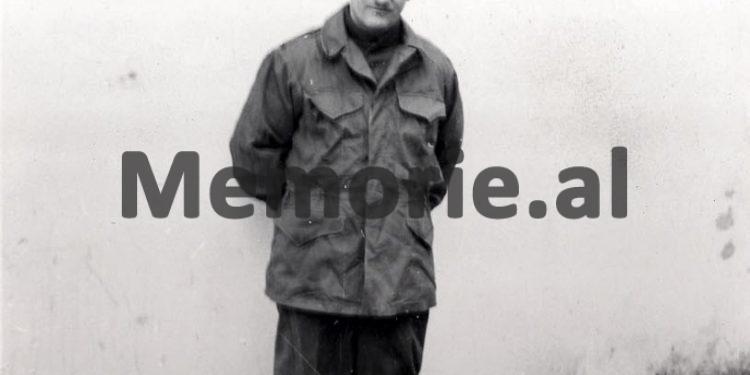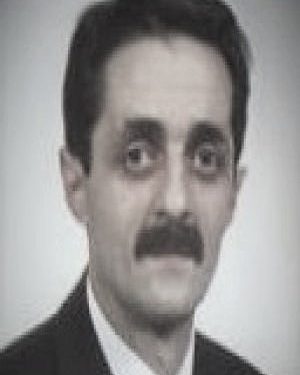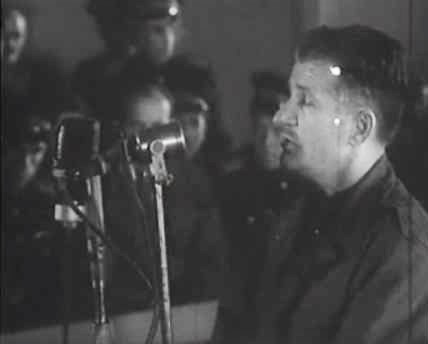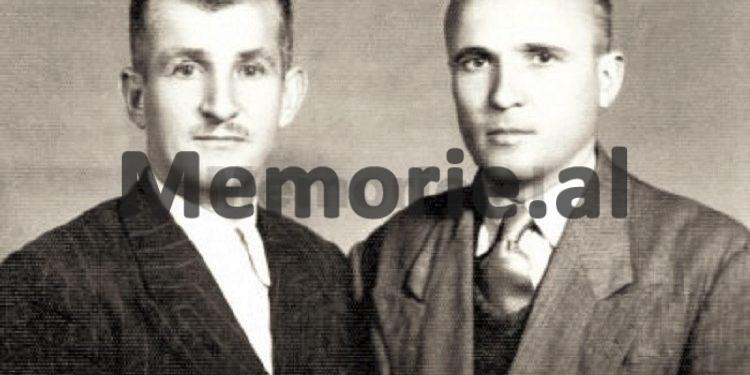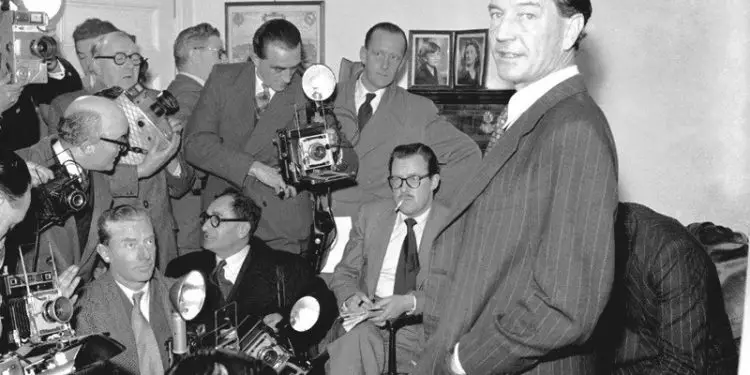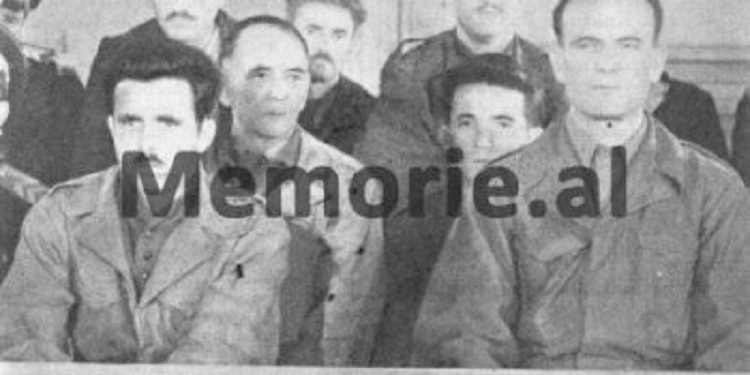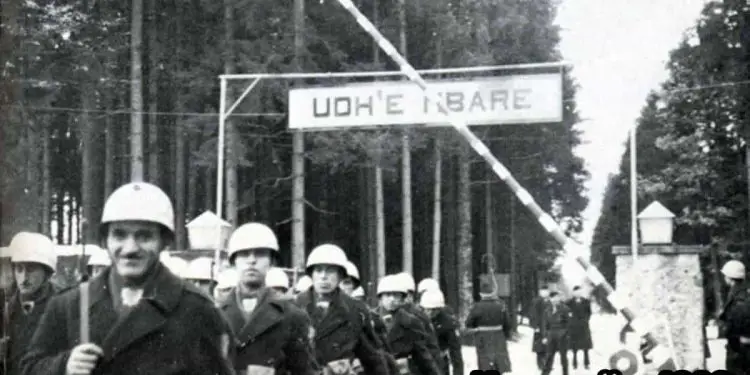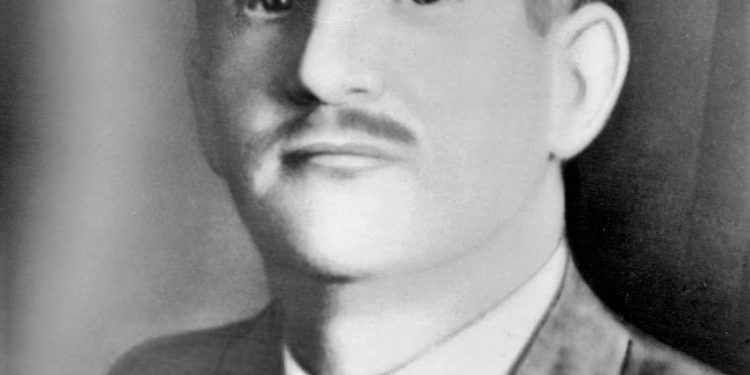By Eugen SHEHU
Memorie.al / The moral constitution of our people carries within its spaces, priceless values. Honor and faith, hospitality and generosity, and the first, the sanctity of freedom, have always carried us through the waves of history, preserving intact the aspiration of natural rights. In this respect, this constitution has not accepted communism as inherent. On the contrary, even if he accepted it under duress and silence, this is directly related to the barbaric methods that this communism, which came from the distant Urals, exercised for five decades in a row, on the innocence of our nation. But not all Albanians were silent, not all were deceived, not all applauded this disease worse than cancer. The very prisons of Tirana, Belgrade and Skopje, in these five decades, full of Albanian anti-communists, testify to the gene of freedom in our blood. The very murders of thousands, the ill-treatment, the deportations through gulags more terrible than those of Stalin, accuse.
Among these Albanians, who understood what communism was, who fought it with weapons in hand until the last moment, is undoubtedly Hamid Matjani. In my childhood, once in Gostivar, I heard in the silent night, (that the walls always have ears,) from my father, about this brave and brave man, they called him the Albanian “Robin Hood”.
Hamiti was born in the summer of 1910, in the village of Matjan, between the beautiful hills of Lushnja and Peqin. The village had this name because the ancestors of Hamit had come here from Mati, in the last century. Blood feud, this blind mechanism of regulating Albanian life, has caused Hamit’s grandfather to leave the forested mountains of Mati, to go to the fields of Myzeqese.
Hamit himself grows up and stands out among his friends, for some good qualities, such as faith and manliness, in which case his friends would always be older than himself. He takes his first lessons in his hometown and then goes to Lushnja. Even here he is very active and seeing his liveliness and seriousness, the parents take their son to Tirana. However, they cannot study outside of Albania and Hamiti, still young, feels that he also has obligations towards the family.
For this, he enters a Gendarmerie course, in which case his results are quite high. The truth is that at the beginning of the 30s, the Albanian gendarmerie was located according to the western systems of this weapon. King Ahmet Zogu himself had Western advisers for the Gendarmerie weapon and he made sure that this weapon was used as well as possible in maintaining order. Without wanting to dwell too much on the Albanian Gendarmerie of those years, we can say that it was fully ready to serve its people.
Hamit Matjani also had this in mind, which started his career here, with the rank of lieutenant, in 1931. Peqini, Lushnja, Durrësi and Tirana would be some of the places where Hamit served for 8 years in a row. Where the tasks were more difficult, where courage was worth being the greatest, Hamit was always there.
They would experience the drama of April 1939 deeply. From early on, he had shown mistrust towards some Italian attitudes, in which case, the European command had also criticized him. It is already known what happened in Albania on April 7. Thousands of Italian soldiers and officers, supported by tanks, cannons, destroyers and warplanes, rushed to the Albanian coast, in continuation of the Shoven intentions to go to Bulgaria.
Hamit Matjani, together with some of his fellow gendarmes from Lushnja, ran armed to Durrës, where the Albanian resistance was led by Abaz Kupi. But this resistance could of course only reach the limits of symbolism, because in front of 50 thousand Italian soldiers, there were only 300 gendarmes and soldiers of the Albanian National Defense.
“After fascist Italy invaded Albania, Hamit Matjani was one of the first to be pursued and arrested by Mussolini’s agents, being rated as; “high risk element”. He was tried and sentenced by the fascist occupier with; “hanging on a rope”. Helped by some of his friends and especially by Qazim Dervish from Lushnja, on February 27, 1940, Hamit Matjani, after sawing the bars of the prison window, escapes with a weapon in hand, continues the fight against the fascist occupier”. (Gazeta “Kosova” September 1995).
Immediately after fascist Italy, Hamit Matjani will offer his help in the weapon of the Albanian gendarmerie. In him, nationalist monarchist ideas took hold and he saw with regret how the communists carried out some shameful assassinations against rich Albanians, just because they did not give financial help. In the first days of September 1943, Isa Manastirliu, the son of Kosovo, called him to Lushnjë. He asks for the cooperation of Hami Matjani, because he has learned as much about bravery as about sincerity and purity in the performance of duties. The truth is that in Albania at that time, immediately after the betrayal that the communists did to Mukje, a brutal civil war had begun.
Albanian nationalist forces, led by prominent men, such as; Mid’hat Frashëri, Fuad Dibra, Hasan Dosti, Kol Tromara, etc., tried at all costs to avoid this war that took the lives of brothers. But this did not happen in the camp of the Albanian communists, because they had sold themselves and all of Albania, into the hands of the Serbo-Montenegro internationalists. So in 1943, Isa Manastirliu, in his position as District Commander of Lushnja, hosted a group of nationalists led by Mid’hat Frashëri in the city.
Many of the citizens there expressed that they would be a strong supporter of the “National Front” and “Legality” organizations. Of course, in this event, the figure of Hamit Matjani could not fail to stand out, through a friend of his, who was known as a sympathizer of the communists, Hamiti said that Lushnja belongs to the nationalists, so the simplest activity would cost the communists dearly. It was even Hamit Matjani, who, a few days later, organized an ambush against the forces of Mehmet Shehu and Dushan Mugosha.
It is already known by everyone that terrorism has been the dirty nature of communist activity, both in the years 1943-1944 and afterwards. Thus, in the fall of 1943, the Albanian communist forces, after hitting the nationalists in the city of Lushnja, directed their action to the surrounding villages. Besides the others, 72 boys and men from these villages were taken, tied with barbed wire and by order of the criminal Mehmet Shehu, sent to Matjan, in the village of Hamit, where they were interrogated if they knew anything about Hamit. Afterwards, all 72 boys were shot in the village cemetery, because they had expressed that they did not want to cooperate with the communists.
During 1944, Hamit Matjani, together with Isa Manastirliu, undertook several battles against the communist forces. Their leadership “with an iron hand” meant that in the areas of Lushnjë-Fier-Berat, the influence of nationalism was great. What should not be forgotten is the fact that; Hamit Matjani cooperated both with the “National Front” organization and with the “Legality Movement” which Major Abaz Kupi was bringing to life. This cooperation of Hamit, with these two Albanian nationalist groups, openly expressed his determined position as an anti-communist. Extremely strict, muscular, with twinkling eyes, Matjani’s son would always be seen at the top of the action, in front of the men.
The autumn of 1944 would be lived in the Albanian years, through endless unrest. As a result of the withdrawal of German troops (paradoxically called their defeat by the national liberators of Tirana and Belgrade), the victory of the communists over Albanian nationalism was easily achieved. Already, instructors from Belgrade were coming to help the communists of Tirana, and their instructions were clear: Uncompromising war against the nationalists! Although the Yugoslavs called themselves internationalists, they secretly were and remained blind students of their Slavic-Orthodox chauvinism. For Hamit Matjani, as for dozens of other Albanian nationalists, it was already clear.
They had to leave their homeland, to join somewhere in exile, with the great hope of the Anglo-Americans, that one day they would be able to come to their Albania. They would never be able to understand the fate of their homeland, in the bloody hands of the communists. Hamit Matjani, along with other exponents of Albanian nationalism, would construct after 1944, the great Albanian resistance to Slavo-communism, which was being assembled for days and more. Of course, his life in the camps of Greece and Italy would be difficult. Through these camps, Albanian nationalists were provoked by all kinds of people and ideas. But they could never fall into the wretched trap of selling their homeland.
Because their convictions had always been to see a free, democratic Albania, because they had wanted the ethnic groups to unite into one, they resisted all kinds of physical and spiritual torture until the end. Hamit Matjani, in these camps, went through great sacrifices. He had to endure, not only the difficult daily life, but also the pain he experienced, while his family and relatives were imprisoned and tortured in the infamous offices of the Albanian State Security.
The Albanian attitude, meanwhile, had begun to evolve both in the consciousness of the citizens in the mother country, and in the Anglo-American plans, who foresaw the great danger that would come to them from communism. At the beginning of 1950, anti-communist groups in the mother country had created the “National Union” organization. Among the main goals of this organization was widespread propaganda among the popular masses, so that Albanians would not be deceived by communism, so that they would resist and support nationalist ideas.
This organization included many Albanian intellectuals, in which case the ideas and decisions taken converged on the overthrow of the communist government by peaceful means. In one of the appeals that circulated in most of the motherland during this time, it was said: “You citizens who spared nothing in the common war, you who gave the best men for the liberation of Albania, who fought with pride for a Free and Democratic Albania, were betrayed in the most despicable way by the infamous communist party, as a consequence of its existence in our country, are suffering the worst in the misery of hunger.
Join as a single fist, in aid of the “National Union” which, thanks to the help and instructions of the “Free Albania” Committee, aims to free the country from communist slavery! So let the traitorous government of Tirana understand that the people want freedom, they want real democracy, bread, abundance, free work and that they are not lying with theoretical speeches that have run out of ink. Give me the understanding that the day has come to demand true democracy, freedom of speech, press and assembly”.
Hamit Matjani is known to have maintained close ties with this organization. His proven courage has made him contact the head of this nationalist organization frequently, giving them hope and concrete instructions on how they should act in complete illegality. Also, documentary sources of the Albanian Royal Court, in exile, talk about Hami Matjani’s close ties with the King, Ahmet Zogu.
Mati’s two men would be united not only by their origins, but especially by their determination to fight communism to the end. In the illegal entrances and exits of Hami Matjani, in the mother country, his great ingenuity was noticed, to escape the traps of the Albanian State Security, this infamous weapon, which supposedly in defense of the “Dictatorship of the Proletariat”, committed the most monstrous crimes.
Even though the Albanian Security has been supported by special agents of the Soviet KGB, Hamit Matjani was able to live for months in Albania, in which case he has made many compatriots for himself. This is the reason that a book, which circulated around 1949-1950, in all the communist organizations of Albania, entitled “War criminals are protected by imperialism”, the name of Hamit Matjani was also included.
The paradox of this book, unlike the others, was in the accusation made against such nationalists as: Mid’hat Frashëri, Ahmet Zogu, Ago Agaj, Vasil Andoni, Hamid Matjani, etc., it was said textually: “They are part of the general war-mongering and expansion plan of the anti-democratic imperialist camp, with the USA at the head, that for their enslaving lusts and desires, they want to prepare a third war against the Soviet Union as well as the democracies others”. (“War crimes…”, Tirana 1948, page 25).
It’s funny to think for a moment that the clique of Tirana, the one that had suffocated every human freedom from the wildest in Europe, accused America as an anti-democratic state!. It is well known that the secret American intelligence gave special importance to the words and deeds of the most prominent Albanian nationalists. Thus, between King Ahmet Zogu and several senior American officers, the possibility of sending and installing Hamit Matjani in Albania for some time is discussed in Washington.
The well-known analyst, Nikolas Bethel, (former American soldier with a mission in Albania during the war period, 1943-’44) regarding this issue, among others, writes; “They agreed that for this, the most suitable was Hamit Matjani, who, more than once, had emerged victorious against the Italian, German and communist authorities in Albania.” (Nicolas Bethel “The Great Betrayal”, page 181).
The death of Dictator Stalin, in early March 1953, seems to have awakened hope not only among Albanian anti-communists, but everywhere. In the mother country, the silent revolt did its job, but the dictatorship hit so hard that thousands of Tirana residents paid tribute to Stalin, hiding their anger somewhere inside themselves. A light of hope has certainly been lit in the Anglo-American discoveries which quickly sent Hamit Matjani to Albania, together with Zenel Shehu, Halil Branica and Haxhi Gjyla. These last three served as officers in the Royal Court and were among the most beloved and loyal figures of King Bird the First.
Among the main goals of this mission was the activation of declared anti-communists in the mother country, the creation of new bases of resistance, the expansion of the ranks of those who wanted to fight the communist power of Enver Hoxha’s clique. Contrary to what has been said and written so far, by the pseudo-historians of Tirana, Pristina, etc., this mission had no plan for terror among the popular masses. He certainly sought to overthrow the power installed by treachery, the power of communist dictatorial violence, but by inciting for this the popular masses, who suffered at their expense, the blacks of the regime.
Of course, a support of this mission could be the descendants of large families, who were systematically violated and destroyed, in which case our nation itself was destroyed. A preparatory period in the place called Haxhiniklis in Greece, would serve Hami Matjani, to get to know other Albanian nationalists, who had put their lives in the service of anti-communist ideals. Completely social in these conversations, Mati’s son, would impose himself on them, not with the name and fame he had gained, but with the great hatred he had for communism.
Thus, on the night of April 30, 1953, a military plane, heading to the Albanian Alps, carried Albanian anti-communist missionaries on board. As they flew home, they certainly did not know that they had become hostages of the American and Soviet intelligence and counter-intelligence race. Kim Filbi, this well-known agent of several discoveries (probably triple), this time working for the Soviet KGB, led those Albanian men directly into the hands of the State Security.
As soon as they jump with parachutes from the plane in a village of Mati, the betrayed Hamit Matjani, together with Gani Malushi and Naun Sula, cannot even hide the parachutes. In the greatest secrecy, they were transported to Tirana, being put under the strict control of the Soviet KGB. It is also known that the criminal himself, Major General Kadri Hazbiu, Minister of Internal Affairs at that time, was in charge of this super action, as we call it, of the KGB in Albania.
The truth (as it came out in court), is that; almost a year ago, through Kim Philby, the KGB was running the agency in Albania for the most part. It was this agent, who more than once carried out assassinations against Albanian nationalist figures in exile. At first, Hamit Matjani was proposed to continue the “game” by declaring to the American Discovery that he was continuing his duty. But he understood that this would be a deep loss, not only for dozens of nationalists who could be killed, but for the entire Albanian anti-communist resistance. Hamit Matjani could never trade the 44 years of his life for the dirty price of betrayal that was being proposed to him.
Further, when all the maneuvers of the State Security and their KGB advisors to defeat the brave nationalist, Hamit Matjani, failed, the entire arsenal of torture was used on him to also reveal what he knew. But even this time, he knew how to win with his stoicism and silence. Apparently, in the personality of Hamit Matjani, the scorpion of the KGB’s hopes had stopped forever. Of course, it was its experts who suggested to the communists of Tirana, the appearance in large popular trials of these: “Criminals, who wanted the overthrow of the communist people’s power”.
Obedient vassals of the Russian Bolsheviks, the internationalists of Tirana, did not fail to make such “powerful” trials, to terrorize the Albanian people even more. He could not give the big “good news” that; Hami Matjan’s gang has been caught and will be brought to trial. The trial was held in April 1954. It too turned into a farce, to serve the grotesque farce of the legislature of Tirana.
“For a whole week, the Albanian community in exile, in Rome, Athens, Munich and Alexandria, listened with horror as Radio Tirana informed the world about their military and political activity…! On April 12, King Zog and his family were sitting around the radio in their villa in Alexandria and listened to how the judge in Tirana announced that the accused were proven guilty and gave the decision: Shehu, Brainica, Sula and Malushi were sentenced to be shot. Hamid Matjani, hanged according to the scary phrase of the judge “to suffer death on the rope”. (N. Bethel, “The Great Betrayal”, pages 196-197).
While the courtroom filled with communists, poor, servile, and people from the State Security, applauded this decision, towards the “enemy” Hamit Matjani, others, those who had known him in his bravery and generosity, naturally felt sad. Mati’s own son did not know that while walking towards the communist stranglehold, hundreds of kilometers away, in Lushnjë, Fier, Vlora, Burrel, Struga, Gostivar, Pejë, Pristina, Rome, Brussels, Paris, New York, Sydney, he found, where the nationalists were lying, a song that began to be sung under his breath, beginning with the verses:
“The country sleeps everywhere
Who keeps Hamid Matjana”?
A sworn nationalist, determined monarchist, faith-strong and unparalleled brave, Hamit Matjani remains honored, not only in the pages of honest Albanian history, in the anti-communist efforts, but also in the soul of every nationalist, as an example of sacrifice, being loyal to the Nation and the Motherland. Memorie.al




